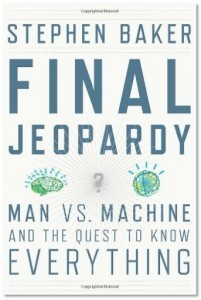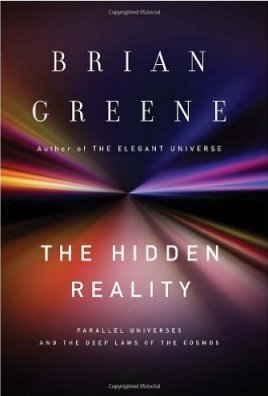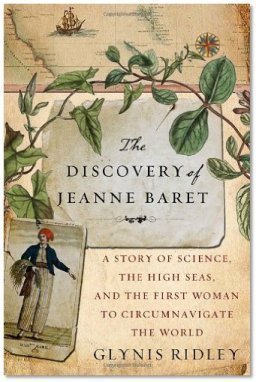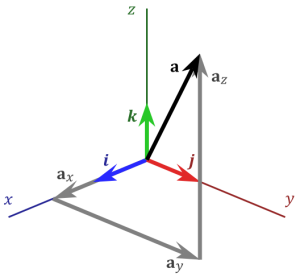Graham Storrs's Blog, page 19
March 2, 2011
The Book Harvest Literary Agency to Represent Graham Storrs


A big tick in the box
Remember what my 2010 end of year report said was the one thing 2011 would be all about? Or when I tried to find a single word to describe my hopes for 2011?
Yes, this was going to be the year that I got myself a literary agent, someone who would represent my work to the big-league publishers, someone who would promote me in circles I simply cannot reach, someone who would talke my writing career to a new professional level. Well, just two months into the year, I have found that agent. We haven't quite signed the contract yet, but I am very, very pleased to let you know that brand new, Sydney-based literary agency The Book Harvest has agreed to represent me, particularly, that Ineke Prochazka, is my go-to guy at the agency.
You might think that signing with an agency that hasn't made a single sale yet is a bit of a risk. You may also remember that I recently turned down an offer from another agent because I didn't think they could do enough for me, even though they did have an actual track record of sales. Well, yes, of course it's a risk, but Book Harvest has two very important things going for it.
The first is that the agency is positioning itself at the top of the food chain, aiming to sell to the big-name publishers. Events may prove that they couldn't make it, but their ambitions and mine line up nicely and the idea of being paired with a new agency has always appealed to me. We're both hungry for this and we're both going to go flat out to make it happen.
The second is Ineke Prochazka herself. She comes highly recommended by someone whose judgement I trust, she's got a background in the retail side of the book business (the side of the business, in my view, that it is absolutely vital to be across these days), and, in my dealings with her so far, she seems like a nice and approachable person, someone I'll be happy to do business with.
Of course, that contract isn't signed yet and there's many a slip, etc., but I am very pleased with how this is going so far and hope to get the paperwork out of the way very soon.
Wish me luck!
February 19, 2011
Nothing but Flowers: A collection of post-apocalyptic love stories


Nothing but Flowers - for the post-apocalyptic lover in your life
I've recently been involved in one of Jodi Cleghorn's whirlwind, all-hands-to-the-pumps publishing adventures. This time it was a collection of short stories called Nothing but Flowers. As with her previous offerings, the writers involved (27 of us in this case) not only contributed the stories, but also provided beta reading and line editing for each others' submissions. Jodi did the final edits, book layout and production. The deadlines were tight and the work was intense. What's more, nobody – not even Jodi – will make a penny from it. It's all for charity. 100% of the receipts will go to help Queensland flood victims.
I've been involved in other charity productions in the past. As a writer, it feels like an excellent way to help people. Unfortunately, the editors are sometimes so keen to get material for their collections, that the result is of very variable quality. Not so in the case of Jodi's books. She, and her company, eMergent Publishing, have attracted a large number of excellent writers (and me) all of whom are keen to pitch in to donate their time and share their skills to create collections of very high quality.
Nothing but Flowers is available to buy as an ebook right now (ePub, Kindle, and PDF formats) for under $5. The paperback will be out soon too and can be pre-ordered at Jodi's Literary Mix Tapes website. It's a great book, it's in a good cause, and I'm in it. In fact, it contains what might be the first short love story I have written. (So let me know what you think.)
'Nuff said.
February 18, 2011
Review: Final Jeopardy by Stephen Baker


What next for Big Blue?
(This review first appeared in the New York Journal of Books)
Over the past few days, a computer called Watson, built and programmed by IBM researchers, has played the game of Jeopardy! against two of the contest's best players. And it won.
To many who watched the match on TV, this may seem like a simple piece of entertainment, or another "so what?" moment in the history of computing. Yet it is an achievement that many computer scientists will see as even more significant than when another IBM machine, Deep Blue, beat Garry Kasparov at chess in 1997.
In Final Jeopardy, Baker presents the story of the creation of this remarkable machine. After the widely trumpeted success of the Kasparov defeat, IBM was looking for another publicity coup of a similar kind. The idea for fielding a computerszed contestant on Jeopardy! came up in late 2004 but it wasn't until 2007 and some tentative internal studies, that IBM executives agreed this was the challenge they wanted and set a team on a three-year path to achieving it. It is also when they began their initial approaches to Sony, which owns the Jeopardy! franchise.
Baker follows the relationship between the two companies as it developed over those years. Each came at the project with different hopes and expectations and the negotiations were sometimes a little fraught. Throughout, Sony had the upper hand. Without the Jeopardy! TV show, IBM had nothing. So when, for example, quite late in the day, Sony insisted that Watson needed a hand so that it could press an actual button like all the other contestants, IBM had little choice but to build its computer a hand. Yet Baker makes it clear that both parties were keen to see the match succeed. His background on IBM, Sony, the Jeopardy! show and its creators are some of the more interesting parts of the book and are slotted into the unfolding story of Watson's laborious preparation and endless testing in a way that keeps the book light and readable.
Readers interested in the technology will be disappointed that there is almost no reference to the actual hardware or software Watson employs. There are hints here and there. The language processing algorithms are described as "statistical" (suggesting several possibilities) and, when Mr. Baker describes the training of the betting strategy module, he could be describing the training of a genetic algorithm or even a neural network. But we are never taken to the level of naming even the class of solutions employed. This is a book for the technologically incurious. It is about the process of achievement and the struggle against failure. It is not about the technology of a question-answering machine. In fact, the notes refer us to a Scientific American article if we want to know how Watson works.
It is clear that Mr. Baker has a good grasp of the technology himself, and of the challenges inherent in answering general knowledge questions in natural language. So it is a shame that he frequently seems to use a kind of journalistic, dumbed-down vocabulary. Jeopardy! contestants are referred to as "know-it-alls" while Watson is repeatedly called "bionic" (which it is not). Yet Baker excels when it comes to showing how a Jeopardy! clue looks from Watson's perspective, how the machine analyzes and answers it, and how little knowledge of anything Watson brings to bear. (Watson's entire knowledge base is hand-crafted by its programmers.)
The story is about the people who built Watson and set up the Jeopardy! showdown. Yet, even at this level, the book is quite superficial. The unfolding story of how a team built a complex piece of software, with severe time restraints, and extremely ambitious goals, is all there, from inception to final victory. Yet the human story that the book could have told is absent. We hear almost nothing about the personal struggles of the main characters. Despite IBM's team having been under pressure for three years to make Watson a winner, there is very little about the personal relationships of its members. Even when it comes to David Ferrucci, the IBM manager who ran the team and is the closest we have to a main character, we see only the surface. And even then, the brooding, somewhat bad-tempered, and driven man we might infer from the book, is at odds with the "open, articulate, and intelligent" person described in the Acknowledgments.
One thing that Mr. Baker does well in the book is to set the techniques and technology of Watson in the wider context of modern artificial intelligence (AI) research. As usual, he steers clear of the technicalities (as well as the philosophical and theological issues) but he gives the reader a whole chapter of background on the broad directions AI is taking. It is a necessarily incomplete and sketchy review but does a decent job of positioning Watson among its software peers. Now that the Jeopardy! game has been played and won, this background will help readers understand some of the rather dismissive remarks already appearing in the press from leading AI researchers.
Arguments about AI aside, it is an interesting question as to how intelligent a machine can appear if you just make it fast enough at crunching data. If a computer can be an unbeatable chess player, or a top-class Jeopardy! contestant, perhaps blinding speed and some clever algorithms are all we really need. Whatever the practical or theoretical issues, IBM seems to have been staking out this territory for itself. Not only do projects like Watson showcase the company's super-fast hardware and its truckloads of researchers, they say to the world that, in our present state of understanding, brute force solutions can achieve what no amount of AI research has yet been able to.
February 17, 2011
I'm Ba-ack!

Yeah, alright, so you didn't even notice I was away, but I was. Thanks to the total incompetence of my ISP, Telstra, I have been offline for 15 days. I don't think I have been so long without the Internet since about 1985. There's progress for you.
And being without the Web and email and all that goes with it, is not just a minor inconvenience these days, it means I can't meet deadlines, it means I miss important business-related communications, and it means I can't talk to my friends and family.
Worse, it feels like being thrown back into the Dark Ages – you know, that feeling you have when the power is out and you have to light candles and gather around the piano in the evening to make your own entertainment. There should be laws compelling ISPs to provide 99.9% up-time or else their CEOs do gaol time.
Anyway, I may break into uncontrollable ranting about Telstra's absolutely useless "customer support" and "technical support" "services" which consist, as far as I can tell, of a few thousand untrained, semi-literate morons for whom the English language is a bewildering and vague concept and who couldn't tell a wireless modem from their own backsides, so I should probably stop there.
So, sorry for the break in transmission, hope you are all well, and normal service will be resumed when I calm down.
February 2, 2011
Review: The Hidden Reality by Brian Greene


The Hidden Reality: A Peek Behind the Curtain
(This review first appeared in the New York Journal of Books.)
If you like your science explained rather than asserted, if you like your science writers articulate and intelligible, if you like popular science to make sense, even as it probes the heart of difficult theory, you are going to love The Hidden Reality and its author, Brian Greene.
This book takes us on a tour of nine popular theories of parallel universes. Yes, nine.
As Greene says, one of the most surprising things about recent developments in theoretical physics, of all flavors, is that the possibility of parallel or multiple universes emerges naturally. From the plain old "quilted" multiverse that general relativity permits, to the 500-dimensional landscape of universes that emerges from string theory, from the foaming bubble universes that inflationary cosmology suggests, to the mathematical Wonderland of the Ultimate Multiverse, Greene guides us with a firm hand and a sure step.
Most of the ideas in the book are mind-boggling and, inevitably, difficult. So, as we go through, Greene introduces all the other ideas we will need to grasp in order to understand them. We get a lesson on quantum mechanics and Schrödinger's equation just in time to understand the "many worlds" hypothesis. We get an excellent side-tour of string theory and M-theory, just before we plunge into the "braneworld" multiverse. And it is all good stuff.
Greene has done a superb job of anticipating all those "But what about . . . ?" questions that form in the reader's mind during such an excursion. Almost as soon as the questions occur, he dives off into a description of the anthropic principle, or a discussion of the nature of infinity, or a quick review of the arguments about whether string theory is actually scientific or not. And all the while he remains humble and honest in the face of the many controversies and uncertainties in the various theories he describes. (Why does string theory require 10 dimensions? Because it makes the math work. He shrugs, and moves on.)
It is rare to encounter a book of such scope and depth that avoids mathematics almost completely (except in a few endnotes, where the "mathematically inclined reader" is thrown a few crumbs) and yet makes so much sense. It is in Greene's clever use of analogies and similes that the strength of his text rests. It is also where so many other popular science writers fall down.
Yet even Greene is not infallible. When he explains why probabilistic reasoning in a "many worlds" context is problematic, he makes use of a "cloning" analogy which is itself contentious and inappropriate. We get what he's saying, despite this, but it is a shame to see even this little flaw in such an excellent book.
Some readers may balk at the fact that the text has copious endnotes as well as occasional footnotes. It would have been better if Greene had made the effort to integrate the information in these notes into the body of the text, or to have used footnotes exclusively. Almost all of the material in the notes is useful and interesting and definitely belongs in the book somewhere, but reading with two bookmarks is a nuisance, and it is going to make any ebook edition even less manageable.
In the end, though, such minor quibbles are irrelevant. The Hidden Reality is a first-class piece of popular science writing. It is clearly written, thoughtful and discursive, and covers material that in itself should be of great interest to any thinking person these days. Greene is always aware of how bizarre most of the ideas he describes will sound, and takes all reasonable pains to ensure that the historical context and scientific arguments are presented to ensure the reader understands just how these ideas arose and what problems in physics they address.
It is a book that deserves huge success.
January 19, 2011
Review: The Discovery of Jeanne Baret by Glynis Ridley

 (This review first appeared in the New York Review of Books.)
(This review first appeared in the New York Review of Books.)
When you consider that the entire historical record for Jeanne Baret comprises little more than a birth certificate, a marriage certificate, a death certificate, and a handful of mentions in other people's journals, Glynis Ridley's achievement in producing an entire biography of the woman is quite something. Not just that, but Ridley's skills as a researcher give us such a strong impression of the times Baret lived in, the people who surrounded and influenced her, and the geography through which she traveled, that, for most of the book, we hardly notice, or care.
Jeanne Baret was born in the Loire valley in France in 1740, the daughter of peasants. She died in Saint-Aulaye, also in France, in 1807, the wife of the local blacksmith. For most of her life, she lived in quiet rural obscurity, but a chance meeting with a well-connected botanist, Philibert Commerson, possibly as early as 1760, changed her life entirely and set her off on the path to wild adventure and to becoming the first woman ever to circumnavigate the globe.
Ridley speculates that Baret was an "herb woman," with a folk knowledge of the medicinal properties of local plants and that she helped Commerson with his collecting and by describing the properties of the plants she knew. Their relationship was close. In 1764 she became his housekeeper and became pregnant—almost certainly with his child—in the same year. The couple moved to Paris—with Baret still in the role of his housekeeper—and the child was given into the care of the Paris foundling hospital for fostering in 1765.
Between them, they cooked up the plan of passing Baret off as a boy so she could continue as Commerson's assistant when he signed on as botanist on a round-the-world expedition for the French government in 1766. But in the close confines of a wooden sailing ship, living and working among a hundred sailors for months at sea, Baret's insistence that she was a man—even when, under questioning by the expedition commander, she claimed to be a eunuch—could not keep her gender a secret. She took to carrying Commerson's pistols with her whenever she had to sleep among the crew, and on the various trips she and Commerson took to collect specimens from the shores of South America and the Pacific islands.
After 18 months of this, her secret was exposed—either when she called for help, under threat of rape by Tahitian men, as the official log claims, or when she was actually raped by members of the crew on the shores of New Ireland in the Solomons, as Ridley claims. Baret's possible rape and subsequent pregnancy neatly explain why she and Commerson left the expedition at the French island of Mauritius and stayed there for several more years.
Commerson died there, leaving Baret to shift for herself, alone, homeless, penniless and unable to pay her way back to France. She worked as a barmaid for at least some of the following year and, in the end, married a French army sergeant who took her back to France and a quiet life in 1774 or 1775.
Ridley has done some impressive detective work in this book, questioning what looks like the lazy acceptance of official accounts by earlier biographers, and coming up with some very plausible alternatives. Yet the story of Jeanne Baret's life is based on very little real evidence.
For the character of Baret herself, we have nothing at all to help us. She kept no journal, the people around her never seemed to mention what she thought or felt about anything. Even Commerson, her mentor, employer, and lover, seems completely indifferent to her in his writings.
In Ridley's account, Baret's feelings about what is happening to her and around her are sometimes guessed at, but Ridley is cautious and conservative, as she should be.
Yet it leaves a hole at heart of this book.
Baret was a woman who left her peasant family to live with her lover and then to tour the world with him in disguise. She practiced botany under one of France's leading scientists, and collected and preserved thousands of specimens, often under great physical duress. She lived in Mauritius as a woman, alone and unaided, and survived. There she found and married the man who would bring her home, and then went on to live in France through all the years of the French Revolution and the terrors that followed. She was intelligent, resourceful, courageous, knowledgeable, skillful, and physically strong.
Ridley's biography tells us what she did and where she went, and it throws some welcome light on the true story of her adventures, but it reveals almost nothing about who Jeanne Baret really was.
The Discovery of Jeanne Baret is a fine and fascinating tale, but it leaves us wanting truly to discover the woman behind the story.
January 2, 2011
End of Year Report

Happy New Year everybody!
First off, thanks to everyone who took advantage of my publisher's Holiday Special and snagged a cheap copy of TimeSplash. Astute shoppers will notice that the offer has now closed. Personally, I'd like to keep the price that low all year round but it's not up to me. Instead, I hope you'll find it is still good value at the price the publisher sets. You'll still find it discounted on sites like Amazon, and Fictionwise – just not quite so much.
New Year's Resolutions
I'd like to tell you about my resolutions, but I didn't make any. I never do. I have enough plans and goals to keep any anal retentive happy, I just don't set them at the turn of the year. My Big Push for the year is to get an agent. Hopefully, I'll achieve this before all the book shops (and then all the publishers) go out of business, otherwise my exciting new agent won't have anyone left to sell my books to. In a way, it would be nice if all the book shops (and publishers) stopped yelling at the tide to go back and just quietly turned up their toes. At least then the market would be nice and simple again. We'd all be self-publishing because there would be no other way to get a book out.
It's nice that the agents I'm approaching tell me I write very well and so on, but it would be nicer if they didn't also say things like "but I'm getting out of the fiction market before I starve," or "but I can only take on one new client per decade now and their books have to give me an orgasm whenever I touch the title page." When the book shops have all gone broke, and the publishers have all gone broke, the agents will have to get jobs as freelance editors or book publicists for all the self-publishing authors who are also going broke.
Work In Progress
Meanwhile, I keep on tapping at the old keyboard. My current WIP is tentatively called Mindrider and is based on one of my short stories of the same name. It's dark. The protagonist is an alien parasite who lives in people's brains and it's sometimes just a tiny bit difficult to make him a sympathetic character. But I like a challenge. It's all written in first person from the parasite's POV too. Another challenge. I'm enjoying it so much, I can easily see me doing a whole series based on these characters. I'm 50,000 words into it, with maybe another 40,000 to go. Then I can get back to the space opera this book interrupted – about a 10,000-year-old robot who is helping humanity fight off an alien invasion. You know what? Being a writer is like being a kid in a toy shop. There are so many wonderful things to play with, you don't know what to pick up next. There are a couple of anthologies I'd like to do stories for too (actually, four) but I'm so much into novel-writing these days that I write very few short stories.
2010 In Review
Not shabby at all.
Concluding Remarks
By for now. I'm looking forward to chatting with you all in 2011. So don't be shy now, and don't be a stranger. There's plenty of space in the comments section below for everybody. I hope you all have a good and successful year too.
Graham.
December 22, 2010
Christmas Wishes and 3 Christmas Gifts For You

This is probably my last post before Christmas, so let me wish you all a great one. I love Christmas and I love having my family here for the celebrations, so I'll be having a good time. I've also lined up my Christmas reading – for all the quiet time that never quite materialises.
As a thank you for visiting my blog during the year, I have thee things I'd like to offer you for your own Christmas reading:
First off, I have persuaded my publisher to reduce the price of my novel TimeSplash for the holiday season. Click on the TimeSplash cover image on the left and you can pick up TimeSplash at the special holiday price of $2.50. It's only on sale at the publisher's site.
Secondly, if that doesn't tempt you. I have put together a set of six, short sci-fi stories, all based in the same 'world' – some previously published in magazines or anthologies but some brand new – and published them as an ebook on Smashwords. The collection includes my prize-winning story 'All the Way', and the Christmas story 'Last Christmas', and it's yours for free using the following code:
'Placid Point: Tales from the History of Transhumanity' by Graham Storrs, https://www.smashwords.com/books/view/19879 coupon code PJ92A (expires Jan 1 2011)
Finally, I've written a short Christmas tale for Jodi Cleghorn's themed Christmas collection "Deck the Halls". Twenty-four short stories on the theme will appear on the Lierary Mixtape blog on 24th December (Aussie time) and will later be available as an ebook. I've already seen a few of these stories and I think you'll like them.
Have a good read and a safe Christmas and New Year,
Graham.
November 30, 2010
Want is a Vector

Mybe you're not writing today. Maybe you can't because there are other things that need doing. You want to write but you never have the time. There is always something that gets in the way. Maybe you are starting to resent it. Maybe you are thinking about making changes in your life. If so, here's a perspective on things that might makes sense of so much of what you do.
Consider the mother of young children who desperately wants to be a writer. She's running a business from home, she's looking after her family, she's taking courses for professional qualifications – and she's writing in her spare time. Some people might say, "If writing is what she really wants to do, she should completely reorganise her life so that she can do it. Nothing else will make her truly happy." Which, of course, is rubbish. It almost certainly wouldn't make her happy to neglect her children. It probably wouldn't make her happy to be poor.
The reason so many people who desperately want to be writers are still doing their day jobs, raising families, and preparing for a future that will be much the same, is that each of us actually wants lots of different things. Lots and lots of them. We want our families to be well cared-for. We want our loved ones to be happy. We want our careers – or, at least, the money they bring. We want to be successful at the things we do, even if they're not anything to do with what we "really" want in our "heart of hearts". We mow the lawn instead of writing because we want it mowed and no-one else is going to do it. We watch TV because we're tired and frazzled from all the crap we've been doing all day and we want to be entertained. Mindlessly.
However much we want to write, all those other wants pull us in all kinds of other directions. Like all the forces on us, their strength varies from day to day, moment to moment. The course we chart through life is the net result of adding up all those forces, their strengths and directions. Imagine each one as an arrow. It points in some direction, towads some behaviour or outcome, and it has a length related to how strong it is. I want my wife to be happy. There's a long arrow and it points in many directions, very few of them anything to do with writing. I want to drive a reliable car. Not such a long arrow, but again, it points to odd places. I want lunch. This one gets longer as the morning progresses and it points me straight at the kitchen and a couple of hour's of activity.
I might delay doing lunch because I need to finish a job I'm being paid for that has a deadline. Wanting to have money is generally a pretty long arrow at my place. For a while there, the money-want was an arrow so much longer than the lunch-want that it dragged all my behaviours in its direction.

imagine this in n dimensions, where n is very large indeed
Remember high-school geometry? Remember vectors? A ship sails on this heading at this speed, with a cross-wind of that direction and that speed, and a current in the other direction at the other speed, what direction and speed does it end up travelling at? All those coordinate systems with arrowed lines all through them? Well, if you do, you already know what I'm on about. The basic point is that if you have several forces acting on an object in several directions with several strengths, you can predict which way and how fast it will move.
Sadly, in the case of human beings, who want so many different things in their lives, all with a strength that varies all the time, prediction is not all that easy. And it makes the question, "What do you really want from your life?" almost meaningless. Want is a vector. Every want is a vector, and you and I are just dots on the graph, pushed one way then the other according to how all this massive complexity resolves itself minute by minute. For some of us, our "direction" in life is close to a "random walk", human particles undergoing Brownian motion. For some, those people who are so driven by a single desire that everything else – spouse, children, friends, family, work, career, image, everything – are relatively unimportant, their lives are almost a straight line. In between is the majority. You and me. Drifting towards, then away from what we say we really want, sometimes on trajectories that seem to be taking us nowhere good.
Yet we have to remember, always, that where life takes us is a choice. We choose based on all those want-vectors. We go where the sum of those vectors takes us, like it or not. And what that means is that we end up doing what we want, even when it might not feel like it. The fact is, we want to keep our children fed more than we want to write – at that moment. We want to walk the dog more than we want to write – at that moment. We want to chat on Twitter more than we want to write – at that moment. And we want it because all the things that are important to us add up to us doing just that, just then, and everything else has to take a back seat for a while.
The important thing is to pick apart that great pin-cushion of arrows and to see what is truly driving us. Yes, spending time with the kids is stopping us writing, but that's only because we want to do it, at that moment, more than we want anything else. When you look at it that way, you can easily find that not writing really isn't so bad, even though you think you want it so much, because you are always doing the things that are most important to you. And, when you look closely at how much time and effort you spend on work, or on keeping the car clean, you can ask yourself which want-vectors are driving it. Is your social status so important that you need such a big house, or such a nice car, or an iPad, or designer clothes? Maybe it is. If so, embrace it. Maybe it's not and you can shorten those arrows a bit, and give the others more of a chance to influence the direction of your life.
November 15, 2010
On Pushing One's Career Off a Cliff


Not for the faint-hearted
Will somebody please say something comforting? Or pass me a chocolate eclair. No, make that a double.
You see, today I had an email from an agent about my book, 'The Credulity Nexus'. It seems they had read the MS in a single sitting, thought it was "a wonderful book", and now want to represent it for me.
And I turned them down.
Hitting the send button on that rejection email was like pushing someone off a cliff . Whatever regrets I might have about this in the future, the deed is done and there is no snatching it back. I now have to face the future knowing there is a body lying down there among the rocks, one that will haunt me if things don't go well.
Anyone who has heard me whining over the past few months on Twitter about how few agents there are left in the world who want to handle science fiction any more, will probably wonder if I've lost my marbles. Any writer who has ever spent years trying and failing to hook an agent in any genre, will probably be printing out my author photo right now so they can throw darts at it.
Yes, I know how hard it is these days to get an agent. We've all seen the agent websites that say they are closed to submissions, their lists are full, they are no longer representing our genre, or they have dropped fiction altogether. (My favourite is this one, currently displayed by a Florida agent, "We are currently giving priority to authors published by major houses.") So why did I just turn down someone who, despite every trend in the industry, really wanted to represent me?
Well, I've thought about it long and hard. (It is now 4:30 am. There will be no sleeping tonight.) And the answer is: ambition.
When I looked closely at the sales this agent had achieved, I was disappointed. There were some decent books placed with one mid-sized publisher and many more with small-to-micro presses. I asked myself if I would be happy with the best this agent seemed able to achieve, and the answer was 'no'. Seven months ago, when I first queried this agent, the answer had been 'yes'.
Since then, I have learned that I can reach and negotiate with publishers of this size on my own. I realised that I don't need an agent to get published. I need an agent to get me into the big-name publishers who won't even look at an unrepresented manuscript. I need an agent to open doors that were slammed shut on writers several years ago and are not even open to the majority of agents. That's why I want an agent, because I'm ambitious. And that's why a poorly-performing agent won't do.
Of course, I realise that by taking this attitude, I've just made my life so much harder. So hard, in fact, that I may never get the kind of agent I now know I want, and never get the chance to see my work pitched to big-name publishers. I also know that hubris is ambition's evil twin. However, I also realised something else while I was soul-searching and failing to sleep. I am actually happy with where my writing career is at the moment. I'm working with some great people who are bright and enthusiastic, creative and highly motivated. I'm getting my work out and enjoying the company. If I ever do take a quantum leap into publishing's stratosphere, that will be very cool, but it's pretty good at ground level too. Not a bad place to be while I wait.



